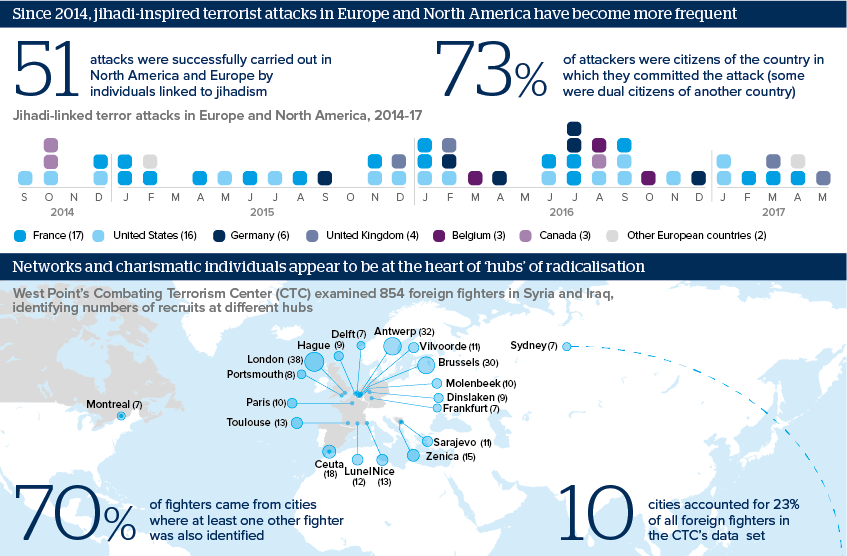Radicalisation hubs will be key to counterterrorism
Rising jihadi terrorism in Europe and North America has spurred efforts to find the causes of radicalisation
Source: Program on Extremism at the George Washington University, International Centre for Counter-Terrorism – The Hague (ICCT): Fear Thy Neighbor: Radicalization and Jihadist Attacks in the West; West Point Combating Terrorism Center: From Cradle to Grave: The Lifecycle of Foreign Fighters in Iraq and Syria
Outlook
Jihadist terrorism has risen in Europe and North America since Islamic State declared its caliphate in 2014. Multiple reasons have been put forward as to what causes individuals to either join the Islamic State in Iraq and Syria as foreign fighters or to carry out violent terrorist attacks. Ideology, relative deprivation and social media propaganda have all been examined. Yet there is no clear link between those causes and radicalisation, and no predictive value.
Perhaps they are all contributing factors to a person’s path towards violent extremism. However, what appears to be a common thread in that path is the physical presence of individuals or networks that push a novice into extremism. This manifests in ‘radicalisation hubs’ -- areas where charismatic individuals or networks facilitate recruitment, and which will be crucial in the fight against terrorism.
Impacts
- Territorial losses are likely to see Islamic State morph into a more traditional terrorist organisation.
- Its foreign fighters could then be redeployed to carry out attacks in their countries of origin.
- Salafist organisations are linked to radicalisation hubs, even if they stay on the right side of the law.
See also
- Focus on internet risks missing radicalisation keys - Oct 3, 2017
- Spain attacks show importance of ‘radicalisation hubs’ - Aug 18, 2017
- Iyad ag Ghali is key obstacle to Mali peace process - Jul 14, 2017
- Global terror patterns open interception opportunities - Oct 28, 2016
- More graphic analysis
